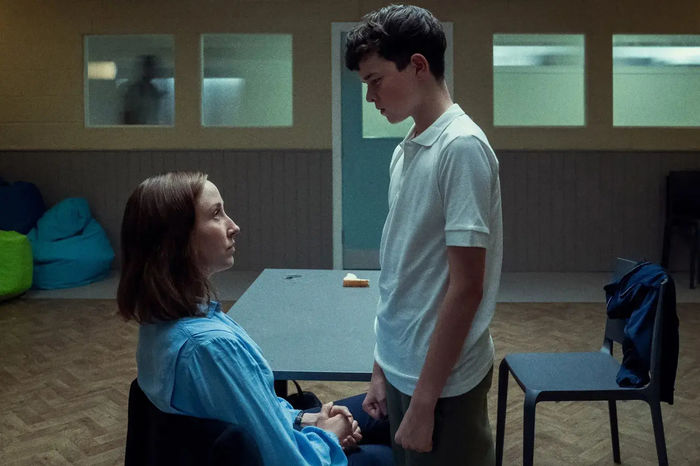The accidental politics of Superman
Alice Cammegh reviews James Gunn’s highly-anticipated 2025 Superman

Crafting a successful superhero movie in the aftermath of Marvel’s Avengers Endgame (2019) cannot be an easy feat. How do you top intergalactic battles and journeys through time and space to save humanity? The simple answer is you can’t, and James Gunn knows it. Instead, Superman (2025) is a back to basics, stripped back story of the indomitable human spirit. With a focus not on the epic power of alien life, but on the quiet resistance of humankind to injustice, Superman serves as a real, charming comic-book classic.
There are of course drawbacks to a simplistic one-man storyline. By removing the ‘origin story‘ aspect of his first Superman film in the DC universe, Gunn struggled to show the strength of relationships between certain characters, exacerbated by the scarcity of Clark Kent screen time. The pacing felt slow at times, with vast amounts of screen time given to Jimmy Olsen (Skyler Gisondo) and his mildly stressful love life, and the slightly 2D depiction of the Justice league (Edi Gathegi as Mister Terrific is not included in this criticism). While these storylines came together eventually, they did draw away from the total breathless charisma of David Corenswet’s Superman, a silly and unfailingly kind character who began erasing the horror of Henry Cavill’s vicious and robotic depiction of him in the Zack Snyder DC films. Truly atrocious character assassination. Comparatively, Corenswet’s Superman is as human as an intergalactic alien can get. Riddled with anxieties, obsessed with the beautiful and witty Lois Lane (Rachel Brosnahan), and hung up on online hate messages and rebrands such as ‘supershit’. “He’s just like us!” Gunn appears to scream from the rooftops.
“This is the hidden strength of a human-focused superhero film, creating familiar situations and enemies for the audience and hero, binding them in a shared moral standpoint”
An eerily prophetic strength of the film is the political climate of Superman’s earth, which mirrors some of the threats and humanitarian crises we face today. Whether or not it was intentional, fans and critics alike have played with revised titles such as ‘Superwoke’, to describe the political attitudes carried by our protagonist. This is the hidden strength of a human-focused superhero film, creating familiar situations and enemies for the audience and hero, binding them in a shared moral standpoint (unless, of course, your political ideals do not align). The parallels between the actions of Lex Luthor and those of anti-immigration supporters in America and beyond are crystal. His obsession with Superman’s ‘alien’ identity aligns with the language used to describe immigrants in American legislation dating all the way back to the 1798 ‘Alien and Sedition Acts’, which sought to restrict immigration and the rights of immigrants in the US. Superman’s fight to survive in the country he was raised in, in the face of suspicion and discrimination, is unfortunately recognisable for millions around the world.
“Whether intentional or not, Gunn’s depiction of Superman and his migrant identity teaches an important lesson about the need for kindness and acceptance on our own earth”
Whether intentional or not, Gunn’s depiction of Superman and his migrant identity teaches an important lesson about the need for kindness and acceptance on our own earth. The other eerie parallel features a dictatorial leader who wishes his country to carry out a military attack on its neighbouring state, with weapons supplied by other powerful nations and companies in order to take control of the land and expand its territories. Sounding familiar? I wonder why. The unintentional nod to the atrocities committed by Israel and Russia past and present serves to create a balance between anger and hopelessness and hope and solidarity. On Earth we don’t have a collection of superheroes to sweep in and save the innocent, but that is not the point Gunn appears to be making. The intervention of Superman and the Justice League in the Boravia/Jarhanpur conflict is motivated by their humanity, and their desire to do what is right, even at the expense of their freedom under their governments and even their lives. Once again, what a familiar decision for so many activists and people around the world, choosing to show their support for those in crisis.
Regardless of whether you choose to read as deeply into these storylines as I have, the message of Superman is simple and heavily reiterated. It asks us to be kind and hopeful, to display compassion for others and love loudly. Even if you didn’t think it was a ‘good’ movie, it’s hard to watch it without coming out of the cinema with a smile on your face, hope in your heart, and a newfound appreciation for the musical talent of Teddybears and Iggy Pop. Bring back heartfelt superhero movies I say. And badly behaved dog representation. In summary, I will be SAT for Supergirl (2026).
 News / Hundreds of Cambridge academics demand vote on fate of vet course20 February 2026
News / Hundreds of Cambridge academics demand vote on fate of vet course20 February 2026 News / Judge Business School advisor resigns over Epstein and Andrew links18 February 2026
News / Judge Business School advisor resigns over Epstein and Andrew links18 February 2026 News / University Council rescinds University Centre membership20 February 2026
News / University Council rescinds University Centre membership20 February 2026 News / Petition demands University reverse decision on vegan menu20 February 2026
News / Petition demands University reverse decision on vegan menu20 February 2026 News / Caius students fail to pass Pride flag proposal20 February 2026
News / Caius students fail to pass Pride flag proposal20 February 2026










